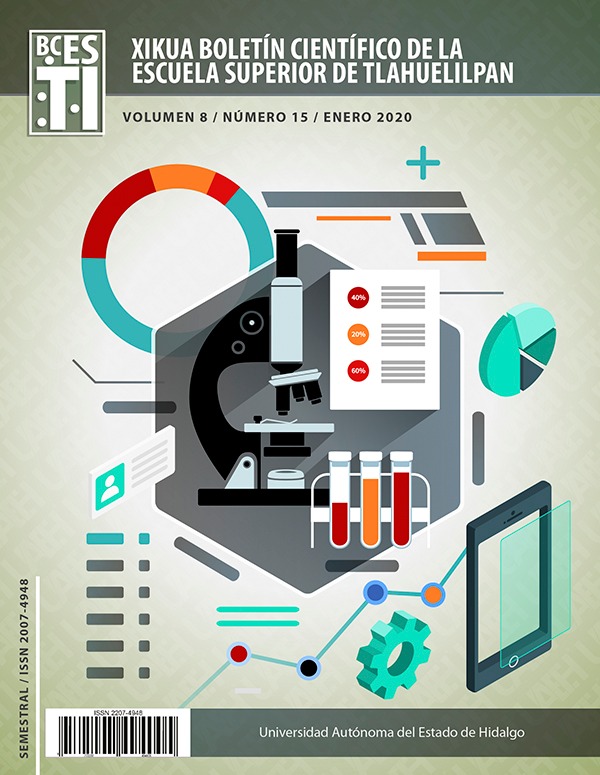Self-concept level in the Senior Adult of the Gerontological Center of Tula de Allende, Hidalgo
Abstract
Introduction: Self-concept is defined as a set of elements that a person uses to describe himself. The Objective was: To evaluate the level of self-concept in the elderly in the gerontological center of Tula de Allende, Hidalgo. Methodology: descriptive quantitative study, n = 40 older adults, with the ages of 72 and 78 years, in the Gerontological Center of Tula de Allende, Hidalgo, in a period of January-February 2019, applying the instrument called Level of Adaptation in the Self-concept mode, with reliability of (KR-20 = 0.88), in addition to a sociodemographic data questionnaire, informed consent was signed. As a result: 82.5% were female, 62.5% had primary schooling and 5% secondary school, 70% were Catholic, 25% Christian and 5% non-believer, 82.5% were engaged in the home, 15% in the countryside, 2.5% merchants, 42.5% were married, 5% free union and 52.5% widowed. 62.5% of the older adults surveyed were at the level of integrated self-concept, 32.5% in compensatory, and 5% in engaged. Discussion: Medina Fernandez (2017) reports 60% integrated, 68% compensatory, its results in a population of 50 individuals. Conclusions: the level of self-concept of the elderly is integrated.
Downloads
References
Gobierno de la república. Situación de las personas adultas mayores en México [Internet] 2013 [consultado el 19 de abril de 2018] [aprox. 2] disponible en http://cedoc.innmujeres.gob.mx/documentos_dowload/101243_1.pdf.
Fondo de Población de Naciones Unidas (UNFPA), Contexto de México [Internet] 2010 [consultado el 06 de mayo del 2018]; Disponible en: http://www.unfra.org.mx/situacion%20en%20mexico.php.
David M, revisión teórica sobre el autoconcepto y su importancia. REID [Internet] 2013 [consultado en Agosto del 2018]; 5; (1) 43-64; Disponible en: https://revistaselectronicas.ujaen.es/index.php/reid/article/viewFile/991/818.
Muñoz Muñoz C., La terapia ocupacional y la promoción de la salud emancipadora para personas mayores, Revista Chilena de Terapia Ocupacional, 2017 (19 de agosto del 2018); 17 (2); 111-117.
Raile M, Martiner A. Modelos y teorías de enfermería. Kenneth D. Editor. Sor Callista Roy “Modelo de Adaptación” Barcelona: Elsevier Mosby; 2007. p. 335-343.
Kalache A. Situación global del envejecimiento. [Internet] 2009 [consultado en septiembre 2018] [Aproximadamente 8]; Disponible en: www.gerontología.org/enevejecimiento_población.htm.
inegi.org. México; CONAPO: 2015;(6 de junio del 2017; 28 de septiembre 2017;31 de mayo del 2018) consultar en: http://www.inegi.org.mx/saladeprensa/aproposito/2017/poblacion2017_Nal.pdf.









